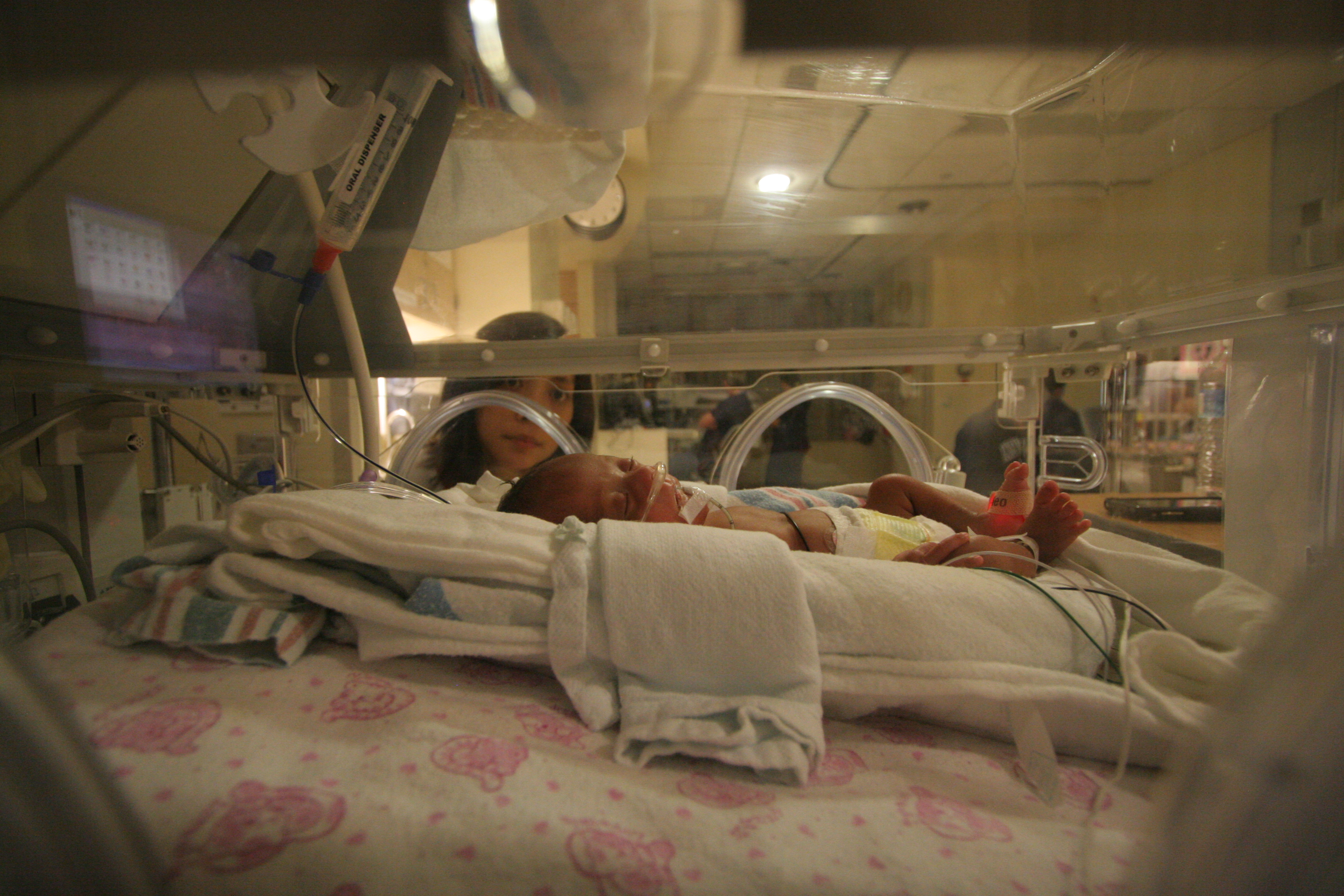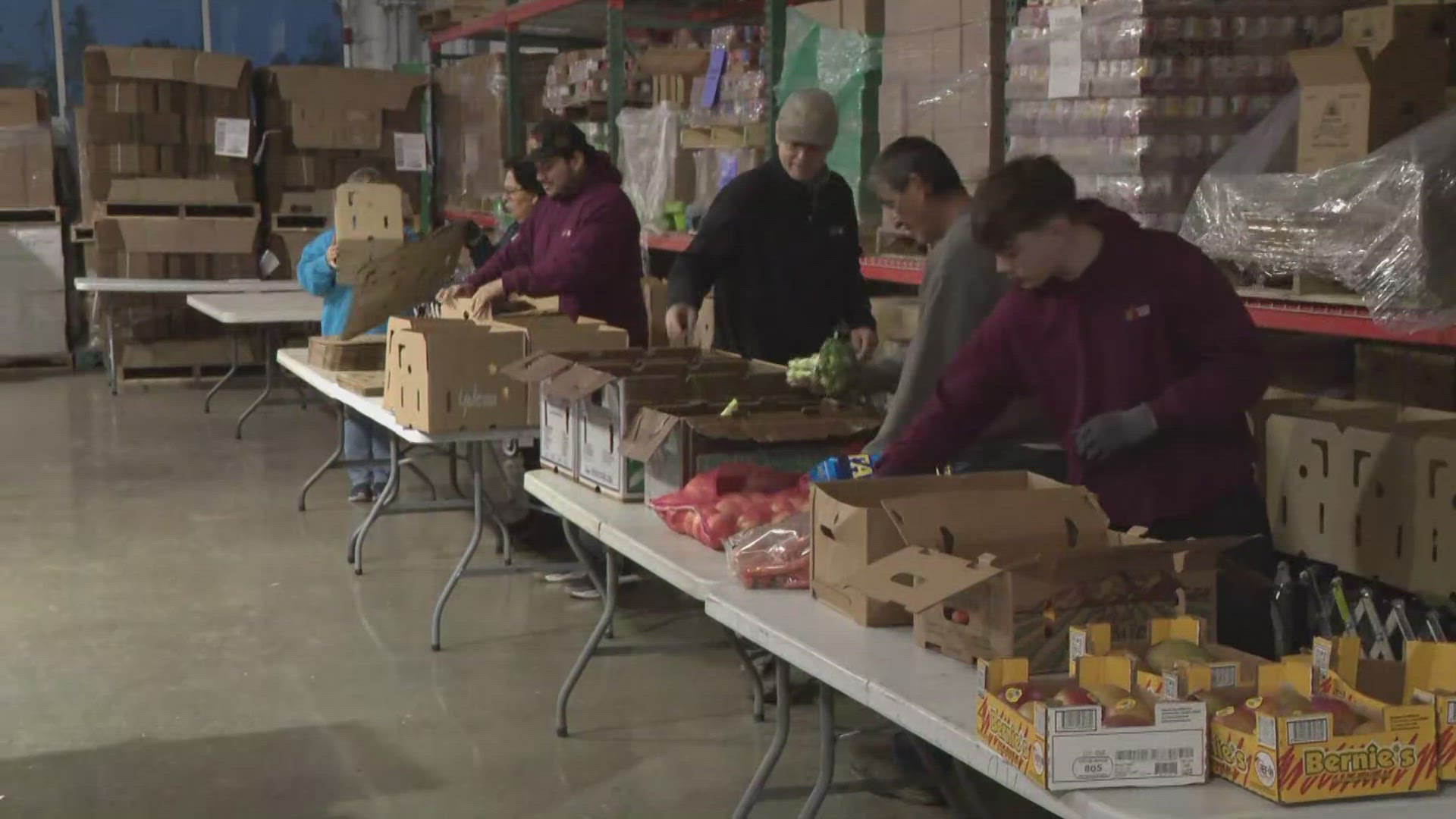Celia Truong is a bubbly 3-year-old girl, full of kisses, hugs and a fighting spirit. Dressed in a doctor's costume, Celia's mom laughed as she remembered the fashion advice Celia had for the doctors at the UC Davis Children's Hospital
"'Mama, do they wear tutus there?'" Celia's mother Perla-Lewis Truong recalled Celia saying. "'I need you to go to your next appointment and let all the women doctors know they can dress up.'"
It wasn't always this optimistic for Celia. Three years ago, she was born premature at 27 weeks and one day of gestation -- a full-term pregnancy is between 39 and 40 weeks.
"Mom was very, very sick," Children's Hospital neonatal physician Dr. Jennifer Scoble said. "So as is often the case, the decision was made to deliver Celia prematurely to save Mom."
Perla had spent her first trimester at another hospital before transferring to UC Davis. That's when doctors told her that she was having issues with her blood pressure.
"So, they told me the worst-case scenario," Perla said. "And I'm like, 'Oh, that's not me. I'm healthy. I exercise, and you know, I'm thin. It'll be fine.'"
Then on Black Friday 2011, doctors noticed something wrong. They found a protein that indicated the pregnancy complication preeclampsia. Perla and her husband Anh went to the hospital thinking they would still have time to go shopping.
"I get to the hospital and I feel fine," Perla said. "I'm like gung-ho. Get me out of here because I need to go shopping. And they're like, 'Here's a computer. Go shopping online because your blood pressure is at a stroke and heart attack level."
Perla spent the next few days at the hospital being monitored while doctors also kept a close eye on Celia. Perla asked if she could leave, but the hospital was quick to warn her that she could have a stillborn. That's when Perla decided to have Celia early.
"It was really hard for me because you have this dream that you're going to go full term," Perla said. "You're going to wear all your maternity clothes. You know, everything is going to be good."
Perla and Anh talked. They went online to research preeclampsia and found that their story isn't uncommon. According to the National Institutes of Health, preeclampsia will affect between 3 to 5 percent of pregnant women in the United States. There are risks to the baby and other complications include seizures, nausea and cardiovascular disease.
Perla said she didn't experience these symptoms, but said she was in pain. She didn't see Celia until three days later.
"I was emotional, and I didn't know if she would make it or not," Perla said. "It was hard for me to think I'm going to bond with something that's not going to make it, even though I already loved her."
Celia was already fighting. She cried at the delivery, but needed help to breathe. Scoble said Celia was placed on a ventilator two days after her birth.
"It's heartbreaking to see them on a machine to keep them alive." Perla said. "Her skin was translucent; she just didn't look like a baby at all."
Celia spent a lot of time at the Children's Hospital Neonatal Intensive Care Unit (NICU) on a ventilator while her lungs properly developed. She also had surgery for an ovarian hernia.
Three months after her birth, Celia was finally given the all clear to go home.
"It was really surreal because I didn't feel like it was real," Perla said. "I feel like she was born and raised in the hospital for parts of her life, but I was very happy for her to come home."
Celia would face other battles at home. She still needed special equipment. Perla said she would get tied up in the cords and break out in rashes. Perla felt her baby could sense her frustration.
Everything turned out okay. Scoble said Celia has done well in her development.
Celia displays a lively and inquisitive spirit. Perla said Celia wants to know everything. For example, as Celia develops her vocabulary, she wants to find out the meaning of words in English, Spanish and Vietnamese. She is also a big sister. As part of her big sister responsibilities, Celia likes to read to her younger sibling.
"She just wants to learn," Perla said. "It's amazing. We're very lucky."
Celia is just one of the premature babies that are cared for at the UC Davis Children's Hospital. Scoble said many of them are at risk for neurological impairment, but facilities like the UC Davis Mind Institute help.
Scoble said the doctors work together to make sure their patients are getting the care they need. She said the Children's Miracle Network has been key to helping babies like Celia by providing fund that help develop new programs at the hospital and new equipment for state-of-the-art care.
Perla said she and Celia received the best care while at UC Davis Children's Hospital. She wants new mothers to be advocates for their children.
"Moms really need the mental support, emotional support and also know that there's a goal at the end," Perla said.
"Even though you might have a really bad episode with your child because they're early, because they're delayed. Know that, they're going to get past that and so will you."
Here's how you can help the Children's Hospital:
News10, the Children's Miracle Network and the UC Davis Children's Hospital are teaming up to host the 2015 Give for Kids Telethon (#Give4Kids) on Friday, Aug. 14, to help raise money for the UC Davis Children's Hospital.
From 4:30 a.m. to 11:35 p.m., you can call 1-877-719-KIDS (5437) to donate using all forms of payment, including cash through a pledge.
You can also text "ICARE" to 80000 to make a one-time $10 donation (standard text and data rates apply). Donate online at on.news10.net/giveforkids using a credit/debit card or echeck.
Your donation will be used to improve, advance and support patient care at the UC Davis Children's Hospital. It's the cornerstone of the Children's Miracle Network -- money given by our community stays in our community.


